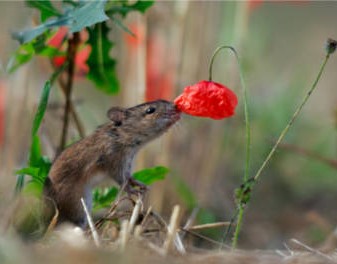Using AI to control energy for indoor agriculture
30 September 2024
Published online 18 August 2019
The sense of smell has changed across mammals due to evolution.

An international research team, led by Luis R. Saraiva from Qatar-based Sidra Medicine, has analyzed genes expressed in the olfactory mucosa, the smell organ in the nose, in mice, rats, dogs, marmosets, macaques and humans. They focused on olfactory sensory neurons (OSNs), which express specific olfactory receptors to pick up odour molecules and then transmit this information to the brain.
Their analyses revealed that the most abundant OSN subtypes are unique for each species and detect odours useful for living in a particular environment. The researchers say that the most abundant OSN subtypes in humans are specialized to detect food odours, and those in mice to detect pheromones.
However, they also detected significant overlap between species. For example, all of the species have OSNs that express TAARs (trace amine–associated receptors), which detect small volatile compounds such as amines, and MS4A (membrane-spanning 4-pass A) receptors, which bind to fatty acids and pheromones. Cumulatively, their findings suggest that these species draw on a broadly similar pool of OSNs but tailor their expression to match specific ecological needs.
“This study can lead to studies that would reveal how variation in genes specific to olfactory receptors can impact smelling of food odours that ultimately shapes food intake in humans,” says Saraiva. “This may help design personalised nutritional strategies for improving well-being or tackling weight-related disorders.”
doi:10.1038/nmiddleeast.2019.113
Saraiva, L. R. et al. A transcriptomic atlas of mammalian olfactory mucosae reveals an evolutionary influence on food odor detection in humans. Sci. Adv. https://doi.org/10.1126/sciadv.aax0396 (2019).
Stay connected: